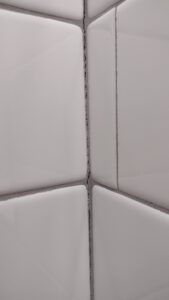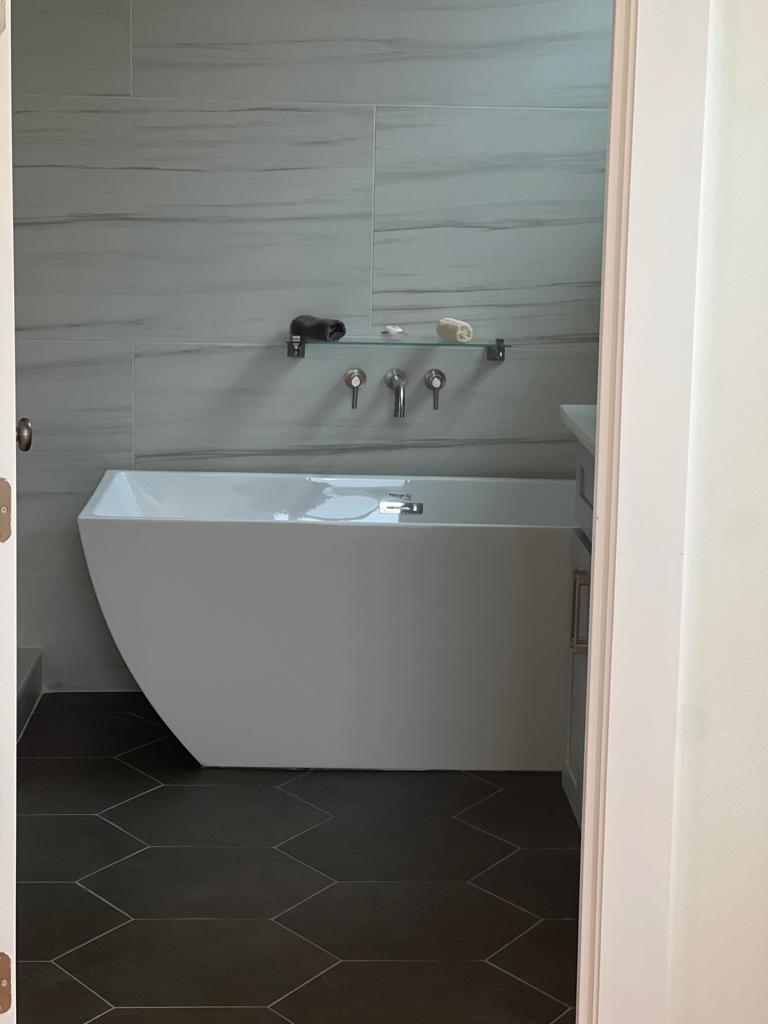A shower grout is a material used to fill gaps between tiles and prevent water from seeping through. However, over time, shower grout can crack and become damaged. This can be frustrating for homeowners, as it not only looks unsightly but can also lead to water damage and mold growth. In this blog post, we will discuss why your new shower grout may be cracking and what you can do to prevent it.


Causes of Shower Grout Cracking
- Incorrect Installation
One of the most common causes of shower grout cracking is improper installation. If the grout is not mixed properly or applied evenly, it can dry unevenly, leading to cracks. Additionally, if the grout is applied too thinly or not allowed to dry for the recommended time, it can also crack.
- Movement of the Shower
Another cause of shower grout cracking is the movement of the shower itself. If the shower is not properly supported, it can move when in use. This movement can cause the tiles to shift and the grout to crack.
- Moisture and Humidity
Moisture and humidity are also major factors in the deterioration of shower grout. As water penetrates the grout, it can cause it to soften and weaken. Additionally, the constant exposure to moisture and humidity can cause the grout to expand and contract, leading to cracks.
- Use of Harsh Cleaners
Using harsh cleaners can also cause shower grout to crack. Some cleaners contain acidic or abrasive ingredients that can damage the grout over time. If you must use a cleaner, choose one that is specifically formulated for use on grout and tile.
- Wear and Tear
Shower grout is also subject to wear and tear. Over time, it can become discolored or cracked due to constant use. Additionally, if the grout was not properly sealed, it can become stained by mold and mildew, which can weaken it and cause it to crack.
Prevention of Shower Grout Cracking
- Proper Installation
To prevent shower grout cracking, it is important to have it installed properly. This means making sure it is mixed and applied evenly and allowed to dry for the recommended amount of time. Additionally, it is important to use a high-quality grout that is specifically designed for use in wet areas.
- Proper Support for the Shower
Proper support for the shower is also essential to prevent grout cracking. Make sure the shower is properly installed and supported so that it does not move when in use. If you notice any movement or shifting, have it repaired as soon as possible to prevent further damage.
- Sealing the Grout
Sealing the grout is also important to prevent cracking. A sealant helps to protect the grout from moisture and humidity, preventing it from weakening and cracking. Additionally, a sealant can help to prevent mold and mildew from growing on the grout, which can also weaken it over time.
- Regular Cleaning and Maintenance
Regular cleaning and maintenance can also help to prevent grout cracking. Use a mild cleaner specifically formulated for use on grout and tile, and avoid using harsh cleaners that can damage the grout. Additionally, inspect the grout regularly for signs of wear and tear, and repair any cracks or damage as soon as possible.
Shower grout cracking is a common problem for homeowners, but it can be prevented. By properly installing the grout, supporting the shower, sealing the grout, and regularly cleaning and maintaining it, you can prevent cracking and extend the life of your shower. If you do notice any cracks or damage, be sure to have it repaired as soon as possible to prevent further damage and protect your home from water damage and mold growth

